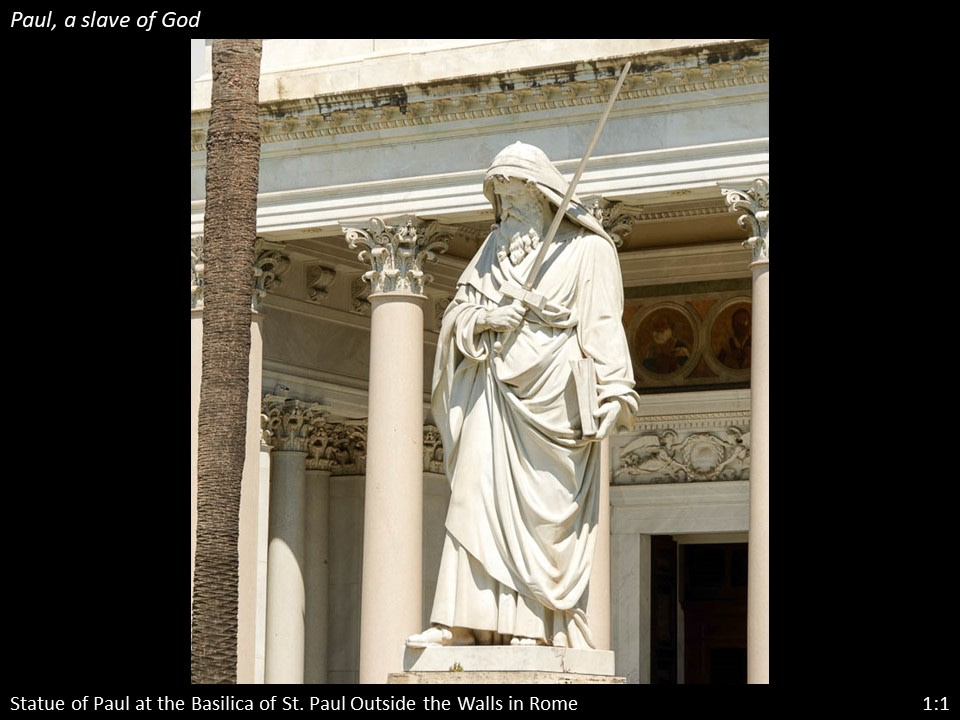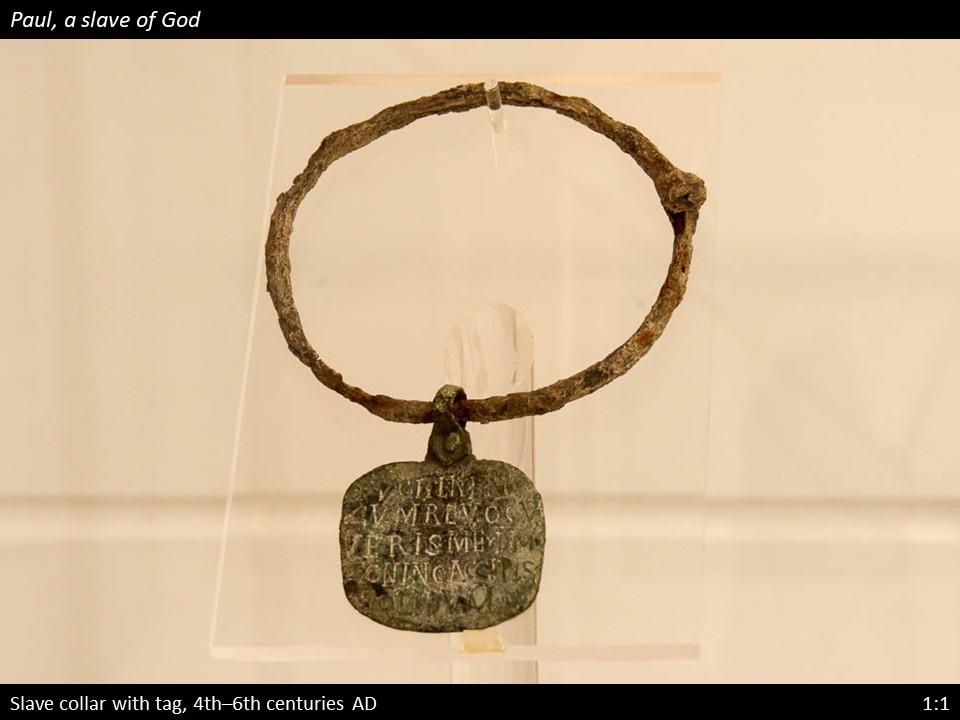There is a short introduction available for the book of Titus. You can read it here.
Key Themes (Titus)
The book of Titus, written by the Apostle Paul, is a pastoral letter addressed to Titus, a young leader whom Paul left in Crete to organize and oversee the churches there. The letter provides guidance on establishing church leadership, promoting sound doctrine, and encouraging good works among believers. It emphasizes the importance of living out the Christian faith in practical ways. The key themes include:
- The Importance of Sound Doctrine: A central theme in Titus is the need for sound doctrine within the church. Paul instructs Titus to teach what is in accord with sound doctrine and to appoint elders who can refute false teachings. This theme emphasizes the necessity of maintaining the integrity of the Gospel message and ensuring that the church’s teaching is based on the truth of God’s Word.
- Qualifications for Church Leaders: Paul outlines specific qualifications for elders, emphasizing the importance of godly character and the ability to teach sound doctrine. Leaders are to be blameless, self-controlled, hospitable, and able to encourage others by sound doctrine and refute those who oppose it. This theme underscores the critical role of leadership in the church and the need for leaders to be exemplary in both their conduct and their teaching.
- Godly Living and Good Works: Paul emphasizes that sound doctrine should lead to godly living. Believers are called to live lives that are self-controlled, upright, and godly, reflecting the transformative power of the Gospel. Paul encourages Titus to stress the importance of good works as evidence of genuine faith. This theme highlights the connection between belief and behavior, teaching that true faith should result in a life of good deeds and moral integrity.
- The Role of Grace in Salvation and Sanctification: Paul reminds Titus that salvation is a result of God’s grace, not human effort. He describes how God’s grace has appeared, bringing salvation to all people and teaching believers to live godly lives while they wait for the blessed hope—the appearing of the glory of Jesus Christ. This theme emphasizes that grace is not only the foundation of salvation but also the driving force behind the believer’s ongoing sanctification and commitment to good works.
- The Importance of Teaching and Mentoring: Paul encourages Titus to teach sound doctrine to different groups within the church, including older men, older women, young men, and slaves. He also instructs older women to mentor younger women in godly living. This theme underscores the importance of teaching, mentoring, and passing on the faith within the Christian community to ensure that each generation grows in spiritual maturity.
- Dealing with False Teachers: Paul warns Titus about the presence of false teachers in Crete who are disrupting the church with their empty talk and deception. He instructs Titus to rebuke them sharply so that they may be sound in the faith. This theme highlights the need for vigilance in protecting the church from false teachings that can lead believers astray.
- The Church’s Witness in the World: Paul instructs believers to be subject to rulers and authorities, to be obedient, and to be ready for every good work. He emphasizes that Christians should avoid quarreling, be gentle, and show perfect courtesy to all people. This theme stresses the importance of the church’s witness in the world, teaching that believers should live in a way that reflects the love and grace of God, thereby attracting others to the faith.
The book of Titus is a practical guide for church leaders and members, emphasizing the importance of sound doctrine, godly living, and good works. Through its themes of leadership qualifications, the role of grace in salvation and sanctification, and the need for teaching and mentoring, Titus provides valuable insights into how the church should function and how believers should live out their faith in everyday life. The letter calls for a vibrant, authentic Christian witness that is grounded in truth and expressed through a life of integrity and service.
What I Noticed Today (Titus 1-Philemon 1 )
)
















In verses 1-4, Paul opens the letter in the usual three-part fashion: he introduces himself, indicates his intended audience (Titus), and extends a greeting. Somewhat different in his letter to Titus is Paul’s introduction of himself: he describes his purpose as to build up the faith of God’s elect and their knowledge of the truth that leads to godliness in the hope of eternal life.
In verses 5-9, Paul stresses the need for elders and their qualifications:
- Paul had left Titus in Crete to finish work left undone from their previous visit. The most important need was to appoint elders to lead the Christian church.
- Paul listed the qualifications for elders:
- Blameless,
- Husband of one wife,
- Faithfull children who are not rebellious,
- Not overbearing,
- Not quick-tempered,
- Not given to much wine,
- Not violent,
- Not pursuing dishonest gain,
- Hospitable,
- One who loves what is good,
- Self-controlled,
- Upright,
- Holy,
- Disciplined
- Hold firmly to the message as it has been taught,
- Encourage others by teaching the message, and
- Refute those who contradict the message.
Note: In 1 Timothy 3:2-7, Paul listed 15 qualifications for elders. In the Titus passage, he lists 17 qualifications (Holy and Upright are the two added in Titus).
In verses 10-16, Paul goes on to warn Titus about false teachers and specifically about the Judaizers:
- There are rebellious people full of empty talk and deception.
- Silence them because they damage the faith of believers for dishonest gain.
- One of their own prophets (a Cretan) called the Cretans liars, evil beasts, and lazy gluttons.
Note: The reference to the characteristics of Cretans is taken from the writings of a 6th century B.C. poet named Epimenides. Paul is comparing the false teachers (Judaizers) with this Cretan stereotype of being liars, evil beasts, and lazy gluttons.
- Paul instructs Titus to rebuke them so they will be sound in the faith (and not like the stereotype).
- That way, they will reject the false teachings of Jewish myths.
- To the pure everything is pure.
- To the defiled and unbelieving nothing is pure. They profess to know God but deny Him by their actions. They are detestable, disobedient, and disqualified for any good work.
Titus 2


















In verses 1-10, Paul instructs Titus on how various groups should demonstrate Godly lives:
- Older men are to be level headed, worthy of respect, sensible, sound in faith, love, and endurance.
- Older women are to be reverent in their behavior, not slanderers, not addicted to much wine, and teach what is good.
- Older women are to encourage young women to love their husbands and children, be self-controlled, pure, homemakers, kind, and submissive to their husbands. All so, God’s word will not be slandered.
- Young men should be self-controlled.
- Titus specifically (because he was a young man) must be an example of good works, integrity, seriousness, and soundness in his teaching. Your message is to be beyond reproach so opponents will have nothing bad to say about Christians.
- Slaves must be submissive to their masters, and well-pleasing, not talking back or stealing, but demonstrating faithfulness so that they too are examples of the godly Christian life.
Note: The start of verse 1, “But you…” sets up a dramatic contrast between the false teachers Paul just described and how Titus must instruct the Cretans to live; in accordance with sound doctrine. This entire section is focused on the believer’s behavior needing to be aligned with sound doctrine and an example to others of a Godly life.
In verses 11-15, Paul gives Titus the theological reason for living a Godly life that he describes in verses 2:1-10:
- The grace of God made salvation available to all men.
Note: Verse 11 should not be read to suggest that all people will be saved. That interpretation does not align with other scripture. Rather, through God’s grace, the appearance of salvation is made available to all, it is up to the individual to accept God’s grace through faith in Christ.
- God’s grace should lead us to deny godlessness and worldly lusts in favor of leading a sensible, righteous, and godly life while we wait for the return of the Lord.
- Jesus gave himself for us, to redeem us for Himself, His possession eager to do good works.
- Paul emphatically directs Titus to teach these things; to encourage and rebuke with all authority and let no one disregard you.
Titus 3










In verses 1-11, Paul tells Titus to remind the Cretan believers how they were expected to live:
- Remind them to be submissive to rulers and authorities, to obey, to be ready for every good work, to slander no one, to avoid fighting, to be kind, and to always show gentleness to everyone.
Note: Paul’s reminder that the Cretans were always to be ready for every good work refers back to 1:16 and 2:14 when he said the false teachers were disqualified from doing good works.
- Paul humbly reminded Titus of the condition he was first in when he became a believer. He was foolish, disobedient, deceived, enslaved by passions and pleasures, living in malice and envy, hateful, and detested one another.
- But all that changed when the goodness of God for mankind appeared (Jesus), who saved us not by works of righteousness but by His mercy, through the washing of regeneration and the renewal of the Holy Spirit. He poured out His Spirit on us through Jesus Christ so that having been justified by grace, we became heirs with the hope of eternal life.
- Paul tells Titus to insist on these things so that those have believed in God might be careful to do good works.
- But avoid foolish debates, genealogies, quarrels and disputes of the Law for they are unprofitable and worthless.
- Reject a divisive person after two warnings knowing that such a person is perverted and self-condemned (similar to 2 Thessalonians 3:14-15).
In verses 12-14, Paul issues his final instructions and greetings to Titus:
- Make every effort to come to me in Nicopolis because I have decided to winter there.
- Diligently help Zenas, the lawyer, and Apollos on their journey so they will lack nothing.
- Our people (believers) must be ready to devote themselves to good works for cases of urgent need so they will not be unfruitful.
- All those with me greet you. Greet those who love us in the faith. Grace be with you all.
Note: The word “you” in verse 15 is plural indicating Paul’s expectation that others would read this letter.
All the notes for the book of Titus have been compiled into a single pdf document. You can download it by clicking here.
There is a short introduction available for the book of Philemon. You can read it here.
Key Themes (Philemon)
The book of Philemon is a brief, personal letter written by the Apostle Paul to Philemon, a Christian leader in Colossae, concerning Onesimus, a runaway slave who had become a believer. Paul appeals to Philemon to welcome Onesimus back not merely as a slave but as a brother in Christ. The letter is rich in themes of forgiveness, reconciliation, and Christian love. The key themes include:
- Forgiveness and Reconciliation: A central theme in Philemon is the call to forgiveness and reconciliation. Paul appeals to Philemon to forgive Onesimus for any wrongs he may have committed and to receive him back with a spirit of reconciliation. This theme highlights the transformative power of the Gospel to restore broken relationships and to foster unity within the Christian community.
- Christian Brotherhood and Equality: Paul emphasizes that, in Christ, social distinctions such as those between slave and master are transcended. He asks Philemon to treat Onesimus not just as a slave but as a beloved brother in the Lord. This theme underscores the equality of all believers in Christ, regardless of their social status, and the call to view one another as family within the body of Christ.
- The Power of the Gospel to Transform Lives: Onesimus, once a runaway slave, has been transformed by the Gospel into a useful and faithful servant of Christ. Paul’s letter reflects the belief that the Gospel can bring about profound changes in individuals’ lives, turning them from their past sins to a new life in Christ. This theme emphasizes the redemptive and life-changing power of the Gospel.
- Christian Love and Intercession: Paul’s letter is marked by a tone of deep Christian love and concern. He intercedes on behalf of Onesimus, asking Philemon to show love and grace. This theme highlights the importance of advocating for others within the Christian community and the role of love in resolving conflicts and fostering reconciliation.
- Voluntary Action and Christian Freedom: Although Paul could have commanded Philemon to act in a certain way, he instead appeals to him out of love, allowing Philemon the freedom to make his own decision. This theme reflects the idea that true Christian actions should be motivated by love and voluntary choice rather than compulsion or obligation.
- Partnership in the Gospel: Paul refers to Philemon as his partner in the Gospel and expresses his confidence that Philemon will do even more than what is asked of him. This theme underscores the concept of partnership and mutual support within the Christian community, where believers work together for the sake of the Gospel and support one another in love.
The book of Philemon, though brief, is a powerful letter that addresses profound themes of forgiveness, reconciliation, and the transformative power of the Gospel. Through its emphasis on Christian love, equality, and voluntary action, Philemon offers a compelling example of how the Gospel should shape relationships within the Christian community, encouraging believers to extend grace, seek reconciliation, and treat one another as equals in Christ.















In verses 1-3, Paul opens the letter in the usual matter: he introduces himself as the author (Paul, a prisoner of Christ Jesus), indicates his intended audience (Philemon, Apphia his wife, and Archippus their son, and the church meeting in their home), and a greeting (grace and peace from God the Father and the Lord Jesus Christ).
Note: This is the only letter in which Paul refers to himself as a “prisoner of Christ.” He also does not refer to himself as an apostle, probably because this letter is more personal carrying a personal request rather than being doctrinal in nature.
In verses 4-7, Paul expresses thanksgiving for Philemon:
- I always thank God for you in my prayers, because I hear of your love and faith toward Jesus.
- I pray your participation in the faith will be productive. (Sharing the faith will lead to a deeper understanding of his spiritual blessings.)
- I have great joy and encouragement from your love because the saints have been refreshed by you.
In verses 8-21, Paul issues an appeal on behalf of Onesimus:
- “For this reason” (some translations, “Therefore”) relates back to the love and faith of Philemon in verses 4-7).
- I could command you to do what is right, says Paul, instead I appeal to you based on love.
- I appeal to you on behalf of my son (in the faith) Onesimus (Onesimus means “useful”).
- I fathered him while in chains (Onesimus attended to Paul while Paul was in prison and accepted Christ).
- Once he was useless to you, now he is useful to both of us (Onesimus was a slave who had run away from his master, Philemon). Now that he is a brother in Christ, Onesimus is useful to both Paul and Philemon.
- I wanted to keep him here with me in prison, but I did not want to do anything without your consent so I am sending him back to you (this implies Onesimus was also the bearer of the letter).
- Perhaps he was separated from you for a time so that you could get him back permanently, not as a slave, but as a brother in Christ.
- If you consider me a partner, welcome him as you would me.
- If he has wronged you or owes you anything, charge it to my account.
- I Paul, write this with my own hand and will repay it (even though you owe me your own self.
- The restoration of Onesimus would bring joy and refreshment to Paul. Since Paul is confident of Philemon’s obedience, he writes knowing Philemon will do even more than he asks.
Note: Paul is making a contract by stating he is writing this himself. He also intimates that Philemon had come to Christ (you owe me your very life) because of Paul’s testimony and presentation of the gospel.
In verse 22, Paul asks Philemon to prepare a room for him because he plans to come and visit, for through your prayers I hope to be restored to you.
Note: The suggestion that he planned to come and visit might be Paul’s subtle way of spurring Philemon to act quickly in response to the letter. The “your” and “you” of verse 22 are plural, referring back to the intended audience in verse 2.
In verse 23-25, Paul extends the usual greeting from those with him in Rome and prays for the grace of the Lord be with Philemon’s spirit.
Some further thoughts for consideration:
- Paul mentions the importance of good works six times in the letter to Titus, explaining that these works are evidence of salvation. We do not earn salvation by works but works are evidence of our salvation.
- The letter to Philemon depicts the restoration of a slave who is now a brother in Christ. The man who was once a runaway slave had become a spiritual son to Paul and brother to his master Philemon. In a way, it is a picture of our own Christian lives; we were once slaves to sin, now through faith in Christ our sins are washed away, we are restored, adopted as sons into God’s family, and spiritual brothers.
What did you notice in your study today? Feel free to visit the website and leave a question or a comment.


